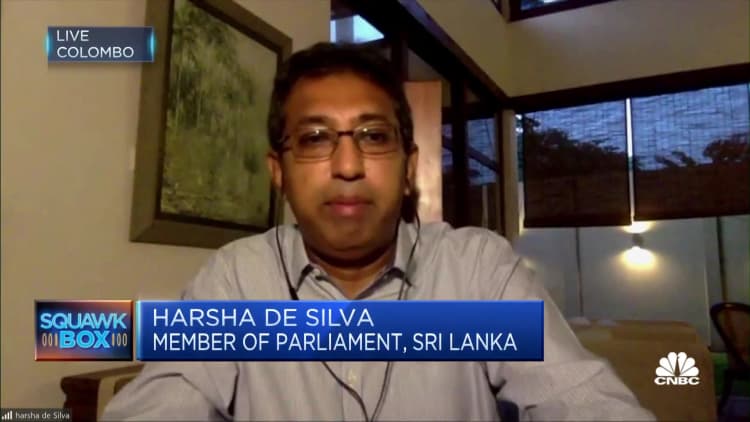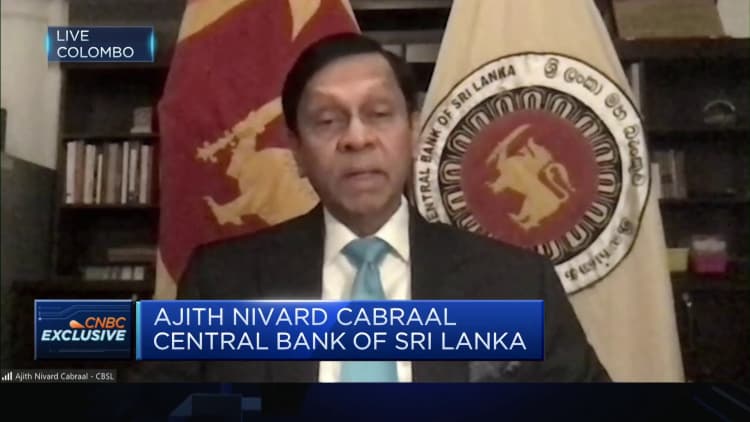
The Sri Lankan government has lost its "legitimacy" for the way it handled the country's debt crisis and the related economic problems, according to a representative from the main opposition party.
Harsha de Silva, a member of parliament at Sri Lanka's Samagi Jana Balavegaya, said the party intends to organize a mass demonstration on March 15 at the capital Colombo, to step up pressure on the government.
"This protest is going to happen and we're going to force the government to step down. In our view, there is no legitimacy for this government," he told CNBC's "Squawk Box Asia" on Monday.
He also criticized the country's finance minister Basil Rohana Rajapakse for not addressing the debt issue in parliament.
"The finance minister has not even come to parliament and spoken about the crisis for three months. And parliament, in a democracy, is where these discussions should happen," he said, adding it is "utterly irresponsible" as to how the government "is handling the crisis."
The South Asian nation is struggling with the dual challenge of rising prices and high external debt, and Sri Lankans are bearing the brunt of an increasingly grim economic crisis.
Reuters reported that the government is set to begin talks with the International Monetary Fund in April, to come up with a plan to deal with the country's worsening debt problems and manage its foreign exchange shortage.

Last week, Sri Lanka's central bank governor Ajith Nivard Cabraal told CNBC his country would be able to pull through the current challenges, but stressed the importance of measures that may not be very palatable. He added the central bank has proposed a package of measures to the Sri Lankan government to help alleviate shortages and curb inflation.
De Silva said the country's debt is not on a sustainable path and blamed the government for implementing policies that aggravated the current domestic issues.
"One being the unnecessary tax cuts and the other being an overnight ban on chemical fertilizers and all other agricultural inputs — it created a massive shock," he said, referring to the tax cuts imposed by the government in 2019, which led to a significant drop in tax revenues during the pandemic.
Citing environmental reasons, the government placed a ban on chemical fertilizer imports last year, which led to protests from farmers. As a result, the government was forced to reverse its decision and has reportedly lifted the ban.
"The opposition have been pushing to have a proper discussion with the IMF, so that we can avoid a hard default and to negotiate a pre-emptive restructuring with bondholders, " de Silva said. "I hope the powers-that-be listen to the sane advice."

